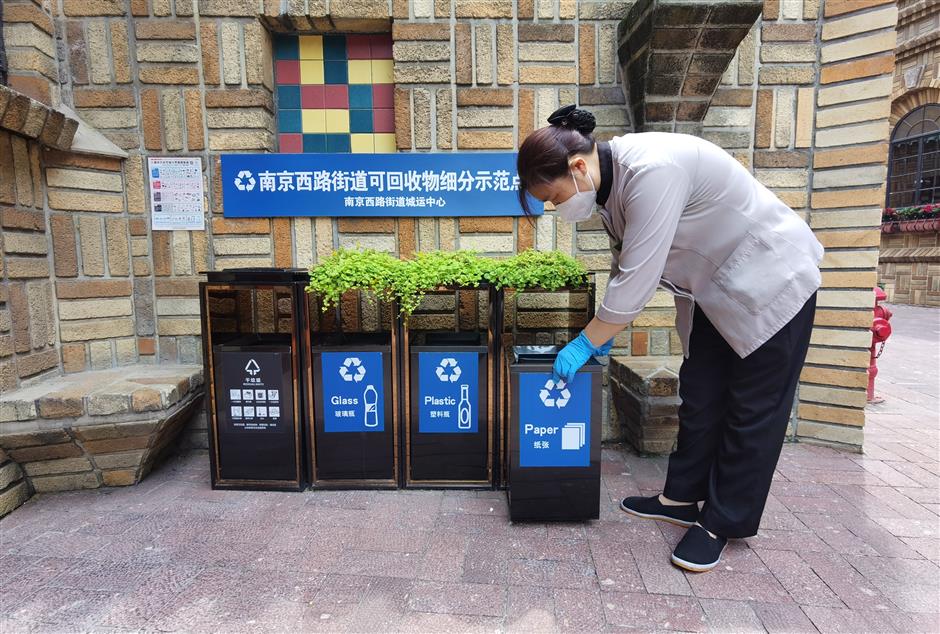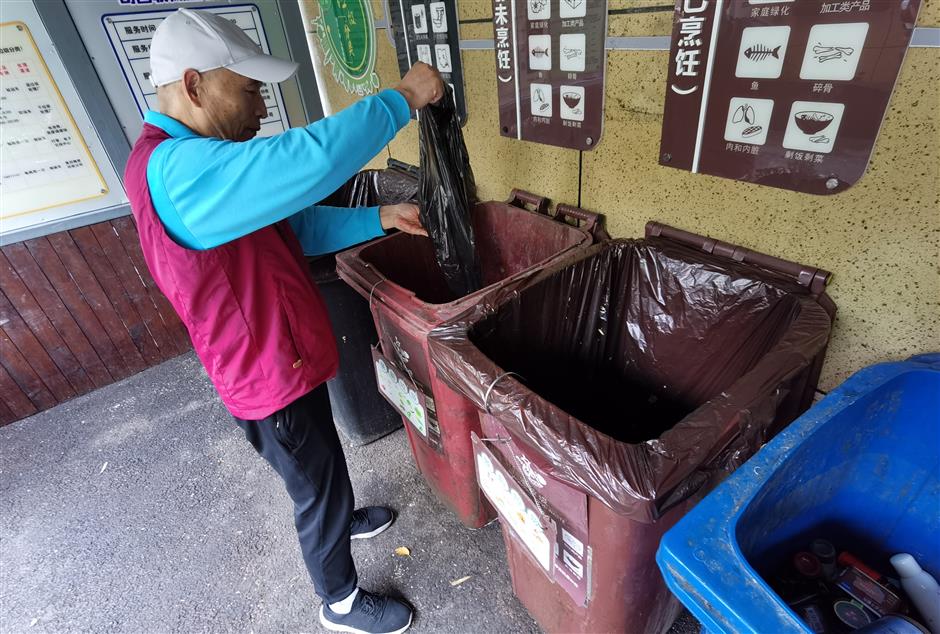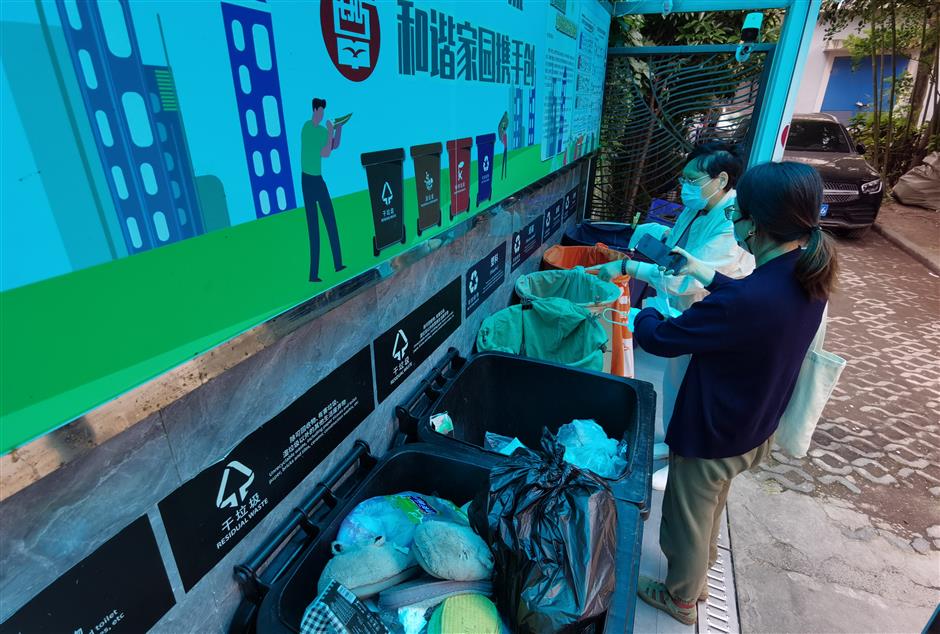
政府新闻
上海市民遵循垃圾分类做法 2023-05-30

A cleaner clears trash bins of recyclable waste in the Nanjing Road W. subdistrict of Jing'an District.
Shanghai has made great progress in its trash-sorting campaign over the past four years since garbage classification regulations went into effect on July 1, 2019, toward the goal of a low-carbon lifestyle.
Overall, the trash-sorting performance of over 95 percent of working units and residential complexes in the city is up to standard, according to the Shanghai Greenery and Public Sanitation Bureau.
In the first four months of this year, 8,533 tons of wet garbage was separated daily on average in the city, compared with 6,950 tons in June 2019, before the regulations went into effect.
As a result, 16,648 tons of dry trash was collected daily between January and April, a drop from 19,370 tons in June 2019.
An average of 7,329 tons of recyclable waste was sorted daily, while 1.82 tons of hazardous trash was collected daily in the four months, both growing significantly from 4,000 tons and 265 kilograms daily in June 2019.
The recycling rate of domestic garbage in the city hit 42 percent, with the target of zero landfill achieved.

Trash sorting has become a habit in Shanghai as with this resident in the Pudong New Area who disposes of wet trash in the correct bin.
To cope with the surging amount of wet trash, the city has stepped up efforts on its handling capacity.
So far, construction of four comprehensive wet garbage treatment facilities out of the seven planned early last year has started.
Shanghai will take combined measures this year on the recycling of wet trash, including conducting research and application on the organic matter utilization of wet trash and expanding the promotion and application of recycled products from wet garbage on areas such as the soil improvement of the intertidal zone, forestry and green land, officials said.
Moreover, a number of old household garbage disposal facilities at residential complexes in the city will be upgraded this year based on new technical requirements and management regulations.

Residents dump separated waste into the appropriate bins at a residential complex in Jing'an District.
"Garbage sorting is a long-term process and the performance of the city in terms of trash sorting quickly recovered after the pandemic," said Deng Jianping, director of the bureau.
"We found that more than 95 percent of subdistricts and towns are doing an excellent job, and we will continue to make random and undercover inspections to bring residential complexes and working units up to standard and will expose the results of inspections," he added.
Behind the remarkable progress is the contribution of volunteers.
So far, the city has registered more than 710,000 trash sorting volunteers, or one in every nine volunteers involved in garbage sorting.
Yang Changyun, a resident of Hongmeinanyuan residential complex in Minhang District in his 80s, appears on time at the garbage disposal room every day as a garbage sorting volunteer.
"From the very beginning when people did not know how to sort trash correctly and resisted trash sorting, to now, they are willing to contribute to a low-carbon life by sticking to trash sorting even without the presence of volunteers.The sense of fulfillment is the driving power of my perseverance," Yang said.
Source: Shanghai Daily

